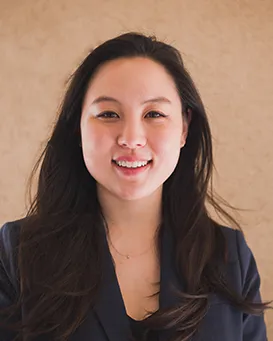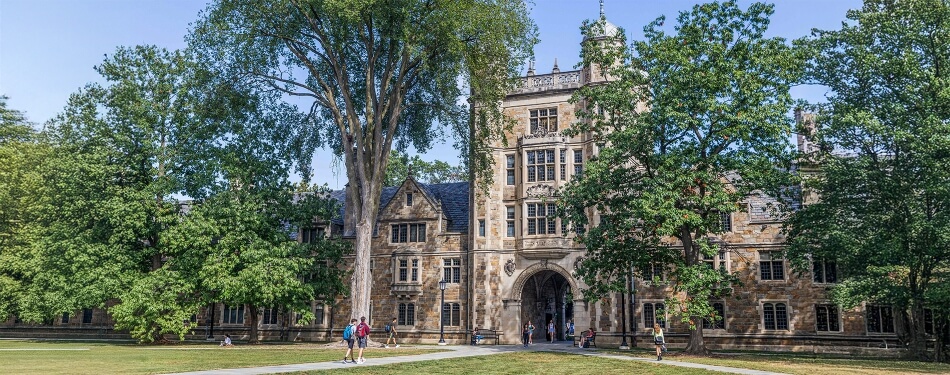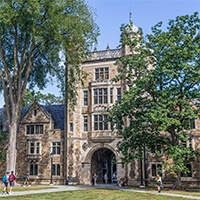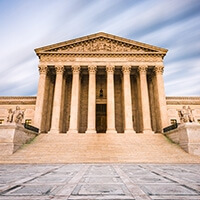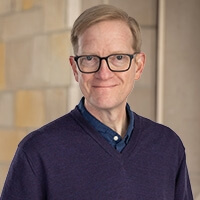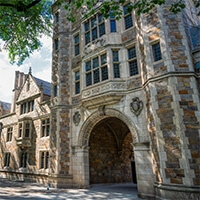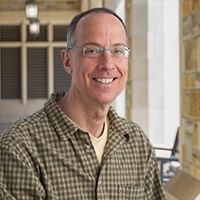In mid-May, just days after the spring semester concluded, 16 students from across the country attended the Bergstrom Child Welfare Law Summer Fellowship program at the Butzel Retreat Center in Ortonville, Michigan. It marked the 30th time that law students interested in this field of practice have come together for a one-of-a-kind opportunity to learn and network.
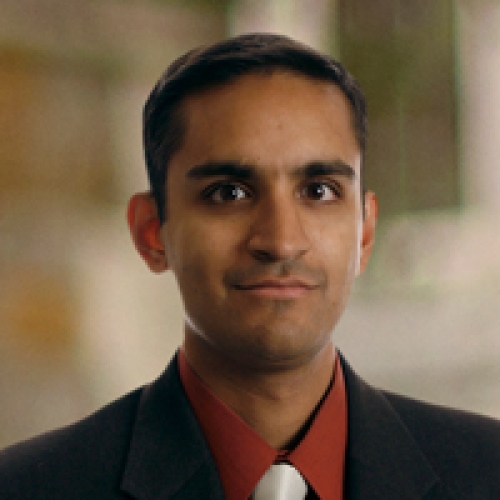
The three-day program was facilitated by Professor Vivek Sankaran, ’01, longtime director of the fellowship program. Sankaran is director of the Law School’s Child Advocacy Law Clinic and Child Welfare Appellate Clinic and the co-director of the AI Law and Policy Clinic, which will be offered beginning in the winter semester of 2026.
In 1995, the W.K. Kellogg Foundation provided a three-year start-up grant as part of the foundation’s Families for Kids Initiative to establish what was then known as the Summer Child Welfare Law Fellowship through the Child Advocacy Law Clinic.
The program is now funded by a generous gift from the Bergstrom Foundation in honor of the late Henry A. Bergstrom, ’35. In addition to the training, fellows receive a stipend to attend a national conference within one year after completing the program.
What the Bergstrom Fellowship meant to me
Nadia Fassa, rising 3L
Nadia Fassa, a rising 3L at Michigan Law, is interning this summer for the Legal Aid Society’s Juvenile Rights Practice in Brooklyn, New York. She is representing adolescents in juvenile delinquency cases and children in abuse and neglect proceedings.
Fassa said the Bergstrom Fellowship introduced her to the nuts and bolts of child welfare law.
“As someone who works in the family regulation system, which almost inevitably results in a great deal of secondary trauma, the fellowship retreat’s focus on making sure to take care of yourself made a significant impact on me,” said Fassa.
“Along with the attorneys on the fellowship retreat with us, there were also multiple social workers and psychologists.”
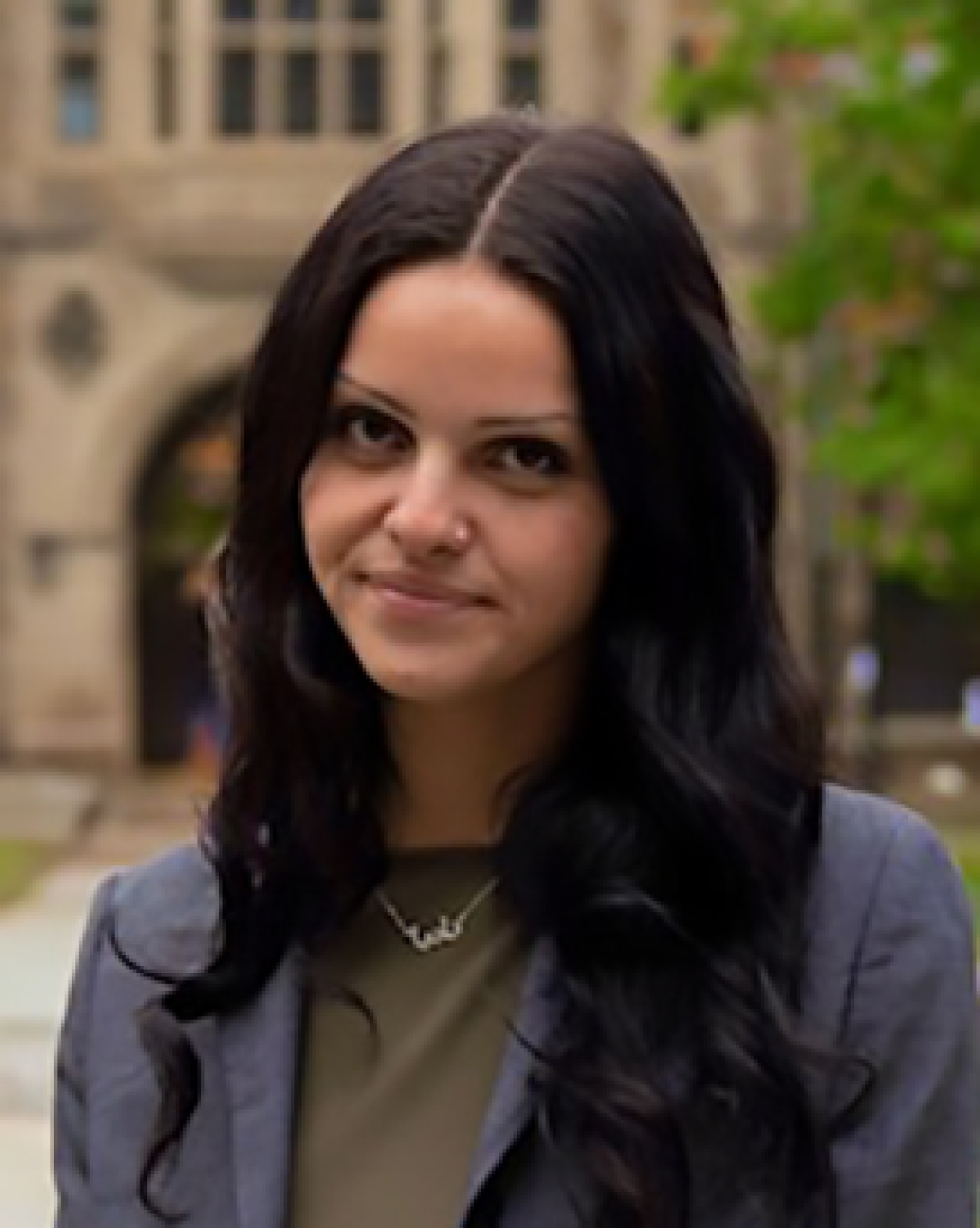
Connecting with nature and like-minded peers
Traditionally, the Bergstrom Summer Fellowship has gathered students from across the country to Michigan Law classrooms, right in the heart of Ann Arbor. However, for the past two years, Sankaran has conducted the program in the style of a retreat, an hour away from the city and in a peaceful, wooded area.
“This program is the only national training opportunity for law students interested in pursuing a career in child welfare law to come together and learn from experts before their summer placements,” said Sankaran. “Returning to a classroom right after exams is the last thing I thought students would want. So, we all stay at the retreat center together, spending time in nature.”
Sankaran noted that a thorough education covering the legal aspects of the foster care system is scarce among many law schools, often leaving students interested in this area feeling isolated. Becoming a Bergstrom Fellow helps introduce students to like-minded peers, as well as a growing network of fellowship alumni.
“I hear stories all the time about students staying in touch with one another in organic ways. That’s the biggest win of it all,” saidSankaran. “When I get pictures from conferences and of fellows having dinner together, I realize that continuing to build a community is the biggest thing we can do for these folks.”
During the retreat, there is a focus on discussing the trauma that parents and kids face in the system. Sessions on poverty, kinship care, and the weight families are carrying are important to Sankaran. “It’s overwhelming, in more of a positive than negative way, for students to have their eyes opened to these situations and learn how we as lawyers can play a role in alleviating that suffering.”
The retreat prepares fellows to then spend at least 10 weeks at a child welfare law internship.
What the Bergstrom Fellowship meant to me
Taylor Fellows, ’20
Taylor Fellows, ’20, is the youth defense research and training attorney with Michigan’s State Appellate Defender’s Office, a newly introduced role.
Her position enables her team to redefine what youth defense looks like in Michigan, both at the trial and appellate levels.
Fellows attributes her foundational knowledge of advocacy work to her time at the Bergstrom Fellowship retreat.
“The fellowship was instrumental in helping me appreciate the importance of not only utilizing data to create change but also elevating the voices and stories of those impacted by the system. It provided a lens early in my career that has helped me in every position.”
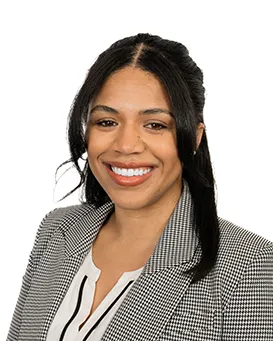
Looking ahead
Michigan Law has been a leader in the foster care legal space since the establishment of the Child Advocacy Clinic in 1976. Sankaran noted that Michigan Law’s excellence continues in part because of the Bergstrom Fellowship, especially as it evolves in response to the broader legal landscape.
“Through the Bergstrom Fellowship, we’ve focused on what law schools often neglect to do: teach students about trauma, compassion, empathy, and self-care,” said Sankaran. “These topics aren’t always addressed, but they are crucial to doing this work well.”
Sankaran looks forward to building on the retreat-style programming that the last two years have offered and, in time, bringing in fresh voices while keeping the tradition of the fellowship alive for years to come.
“I am grateful to Michigan Law and Hank Bergstrom for having the vision to create the space for us,” he said. “I hope the folks who invested in this program many years ago know that it is making a profound difference in students’ lives and, by a derivative effect, the families they serve.”
What the Bergstrom Fellowship meant to me
Katie Joh, ’17
Katie Joh, ’17, has recently become the CEO of the Dependency Advocacy Center, a nonprofit legal services organization that serves families in the child welfare system in Santa Clara County, California.
Joh said that child welfare has been the focus of her entire career, so having the opportunity to participate in the fellowship was the perfect way to launch into her field.
“The year I did the Bergstrom Fellowship, Michigan Law was also hosting a conference featuring prominent thought leadership within the child welfare field. It was eye-opening to witness some of the debates within the field unfold in real time before me.
My fellowship experience reminds me why I do this work and helps me locate that meaning within the more global context of child welfare law.”
